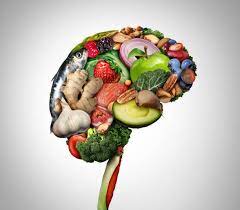In recent years, there has been a growing interest in understanding the connection between nutrition and mental health. While we have long recognized the importance of a healthy diet for physical well-being, research now suggests that what we eat can also significantly impact our mental well-being. This article aims to explore the relationship between nutrition and mental health, shedding light on the intricate connections between the two.
The Gut-Brain Axis: Understanding the Link
The gut-brain axis is a complex bidirectional communication system between the gut and the brain. It involves various pathways, including hormonal, neural, and immunological signals. The gut microbiota, which refers to the trillions of microorganisms residing in our gastrointestinal tract, plays a crucial role in this connection. Emerging evidence suggests that the gut microbiota can influence brain function and behavior.
Research has shown that certain gut bacteria produce neurotransmitters, such as serotonin and dopamine, which are known to regulate mood and emotions. These neurotransmitters play a vital role in maintaining mental health. Additionally, the gut microbiota produces metabolites that can enter the bloodstream and reach the brain, affecting cognitive processes and emotional well-being.
Nutritional Deficiencies and Mental Health Disorders
Nutritional deficiencies can have a significant impact on mental health. Several key nutrients are essential for proper brain function and mental well-being. For example, omega-3 fatty acids, commonly found in fatty fish, walnuts, and flaxseeds, are crucial for maintaining brain health. Studies have shown that low levels of omega-3 fatty acids are associated with an increased risk of depression and other mental health disorders.
B vitamins, including folate, B6, and B12, are also vital for mental health. These vitamins are involved in neurotransmitter synthesis and play a role in mood regulation. Deficiencies in B vitamins have been linked to depression and cognitive decline.
Similarly, minerals like zinc and magnesium are essential for brain function and mental health. Zinc is involved in neurotransmitter metabolism and has been found to be lower in individuals with depression. Magnesium plays a role in stress regulation and has been associated with anxiety and depression when levels are insufficient.
Inflammation, Diet, and Mental Health
Inflammation is a natural response of the immune system to protect the body against harmful stimuli. However, chronic inflammation can have detrimental effects on mental health. An unhealthy diet, high in processed foods, refined sugars, and unhealthy fats, can contribute to chronic inflammation in the body.
Research suggests that chronic inflammation may increase the risk of developing mental health conditions such as depression and anxiety. Inflammation can disrupt the balance of neurotransmitters and affect the functioning of brain circuits involved in mood regulation. Furthermore, inflammation can impair the production of neuroprotective factors, leading to neuronal damage and cognitive decline.
The Role of a Healthy Diet in Mental Health Promotion
Adopting a nutrient-rich diet is crucial for maintaining good mental health. A healthy diet should include a variety of fruits, vegetables, whole grains, lean proteins, and healthy fats. These foods provide the necessary nutrients for optimal brain function.
Omega-3 fatty acids, found in fatty fish, chia seeds, and flaxseeds, have been shown to reduce symptoms of depression and improve overall mood. These healthy fats support the structure of brain cell membranes and facilitate proper neurotransmitter function.
Foods rich in B vitamins, such as leafy greens, legumes, and fortified cereals, can help support mental health. These vitamins are involved in the synthesis of neurotransmitters like serotonin and dopamine, which play a critical role in regulating mood.
Antioxidant-rich foods, including berries, dark chocolate, and colorful vegetables, can help combat oxidative stress and reduce inflammation in the body. By reducing inflammation, these foods may have a positive impact on mental well-being.
Dietary Interventions for Mental Health
The emerging field of nutritional psychiatry focuses on using dietary interventions to improve mental health outcomes. Several dietary interventions have shown promise in supporting mental well-being.
The Mediterranean diet, characterized by an abundance of fruits, vegetables, whole grains, legumes, fish, and olive oil, has been associated with a reduced risk of depression and cognitive decline. This diet provides a rich array of nutrients and antioxidants that support brain health.
The DASH (Dietary Approaches to Stop Hypertension) diet, which emphasizes fruits, vegetables, low-fat dairy, lean proteins, and whole grains, has also been linked to a lower risk of depression. This diet is high in nutrients that promote cardiovascular health, and it may have beneficial effects on brain function as well.
Personalized approaches to nutrition are crucial in the field of nutritional psychiatry. Each individual may have unique nutrient needs, and tailoring dietary recommendations based on factors such as genetics, gut microbiota composition, and specific mental health conditions can optimize outcomes.
Lifestyle Factors and Mental Health
While nutrition plays a significant role in mental health, it is important to recognize the interplay between various lifestyle factors. Regular physical exercise has been shown to have positive effects on mental well-being by reducing symptoms of depression and anxiety. Exercise promotes the release of endorphins, improves sleep quality, and enhances self-esteem.
Quality sleep is also essential for mental health. Sleep deprivation can impair cognitive function, mood regulation, and overall well-being. Adopting good sleep hygiene practices, such as establishing a regular sleep schedule and creating a comfortable sleep environment, can significantly improve mental health outcomes.
Stress management techniques, such as mindfulness meditation, yoga, and deep breathing exercises, can also contribute to better mental well-being. These practices help reduce stress hormone levels, promote relaxation, and enhance emotional resilience.
Conclusion
The connection between nutrition and mental health is an exciting area of research that continues to provide valuable insights. A healthy diet, rich in essential nutrients, can support brain function, reduce inflammation, and improve mental well-being. While dietary interventions show promise, it is important to adopt a holistic approach that considers other lifestyle factors like exercise, sleep, and stress management. By prioritizing nutrition and adopting a healthy lifestyle, we can empower ourselves to nurture our mental health and overall well-being.
